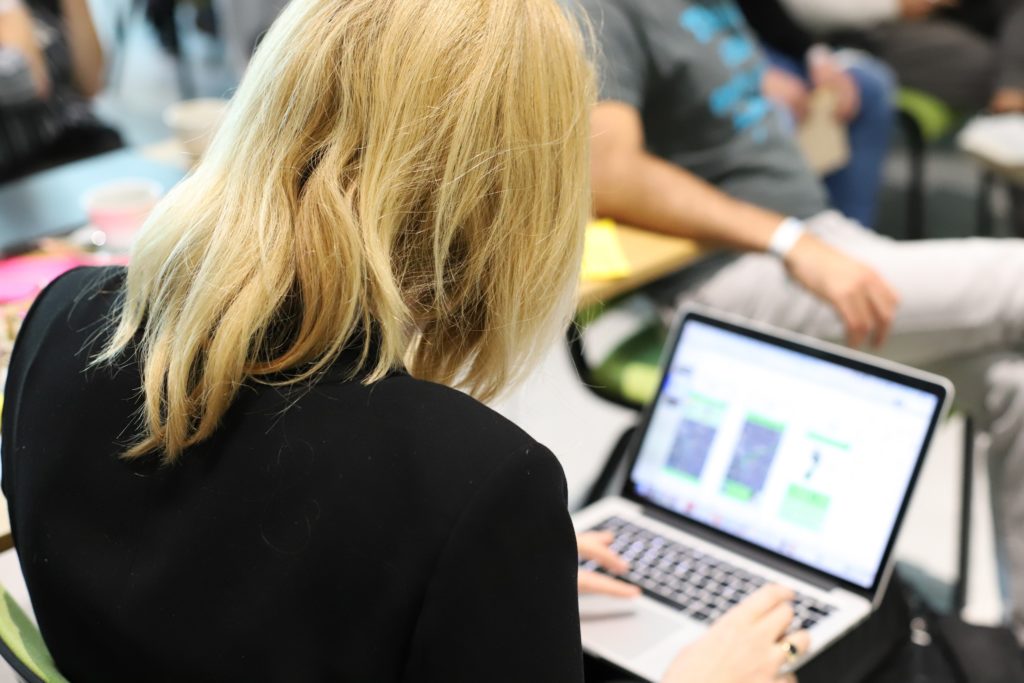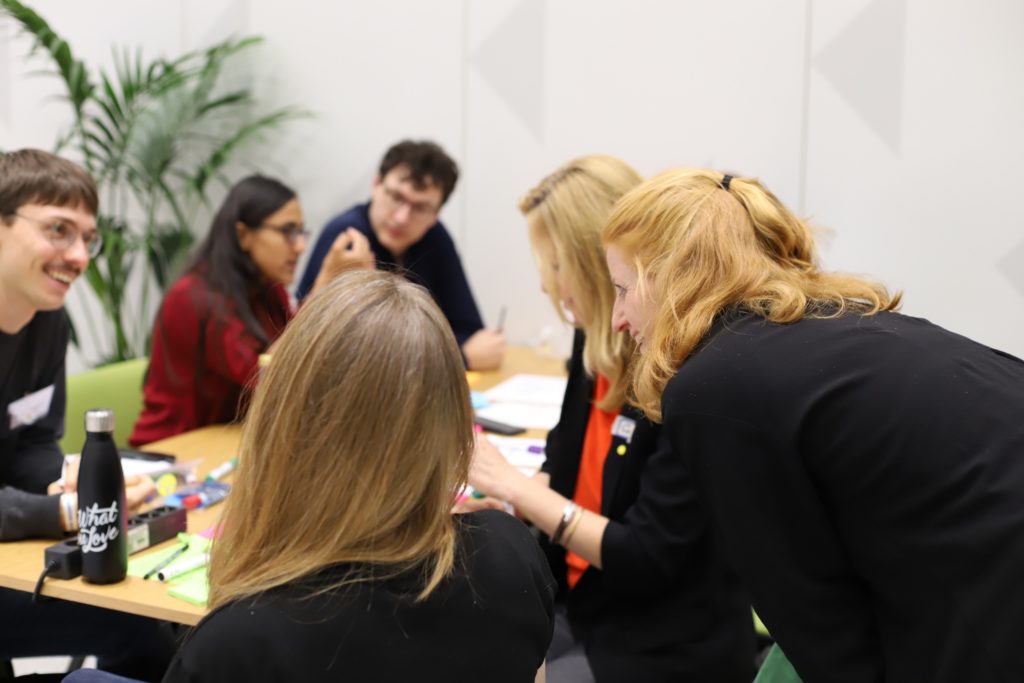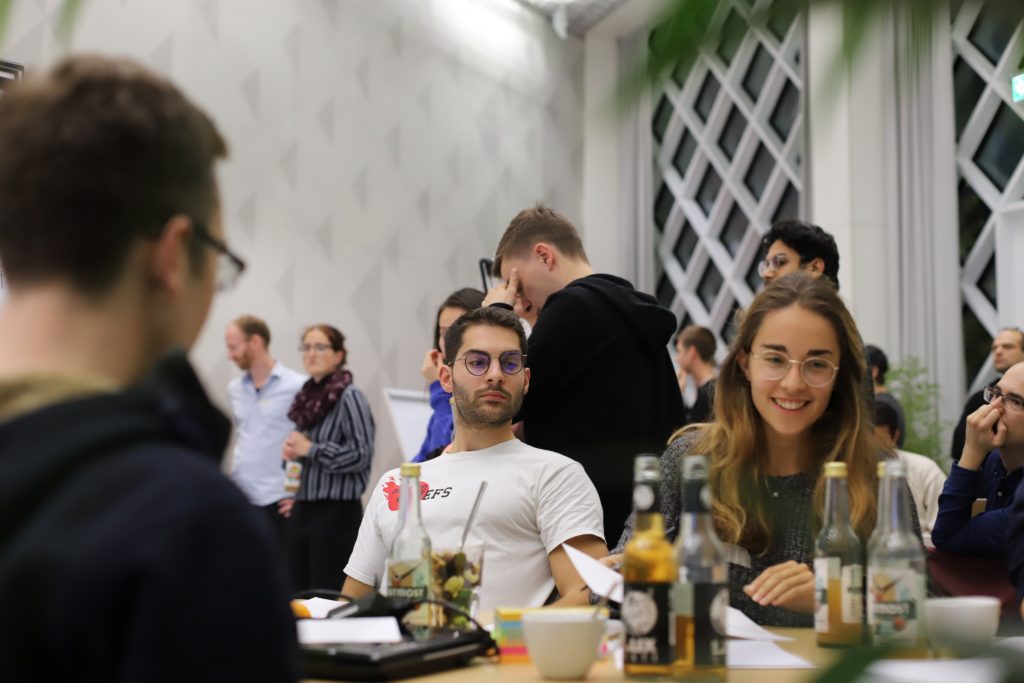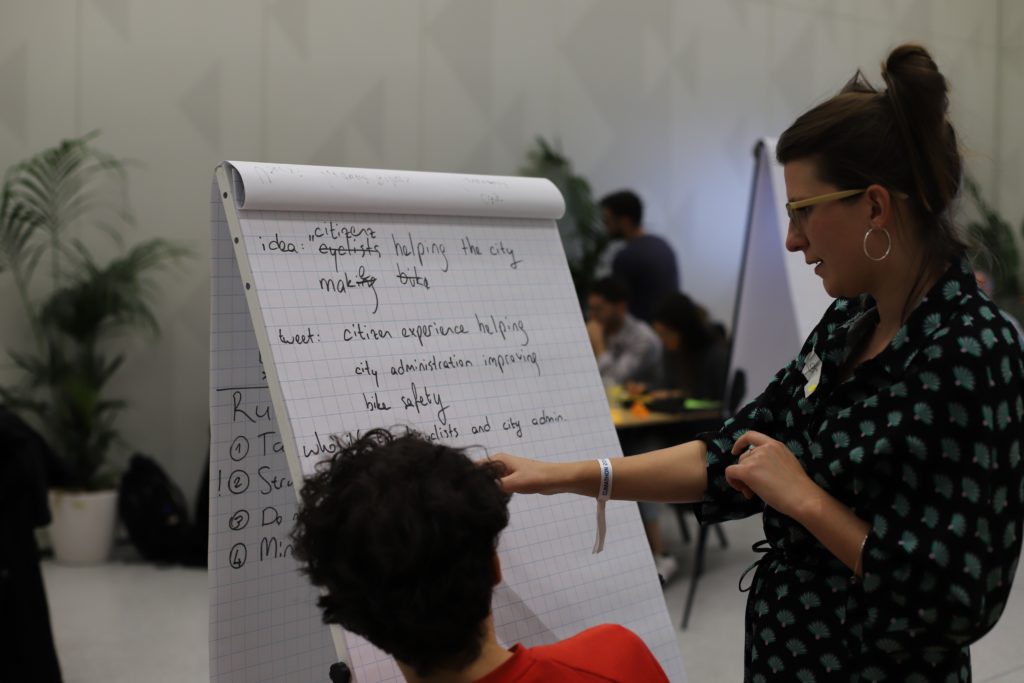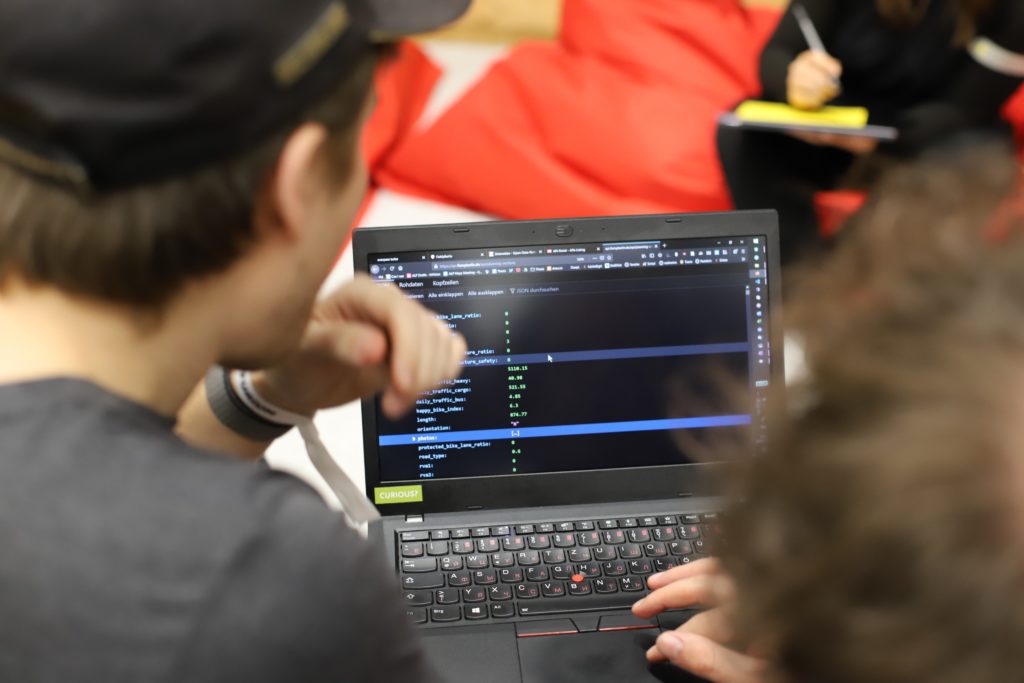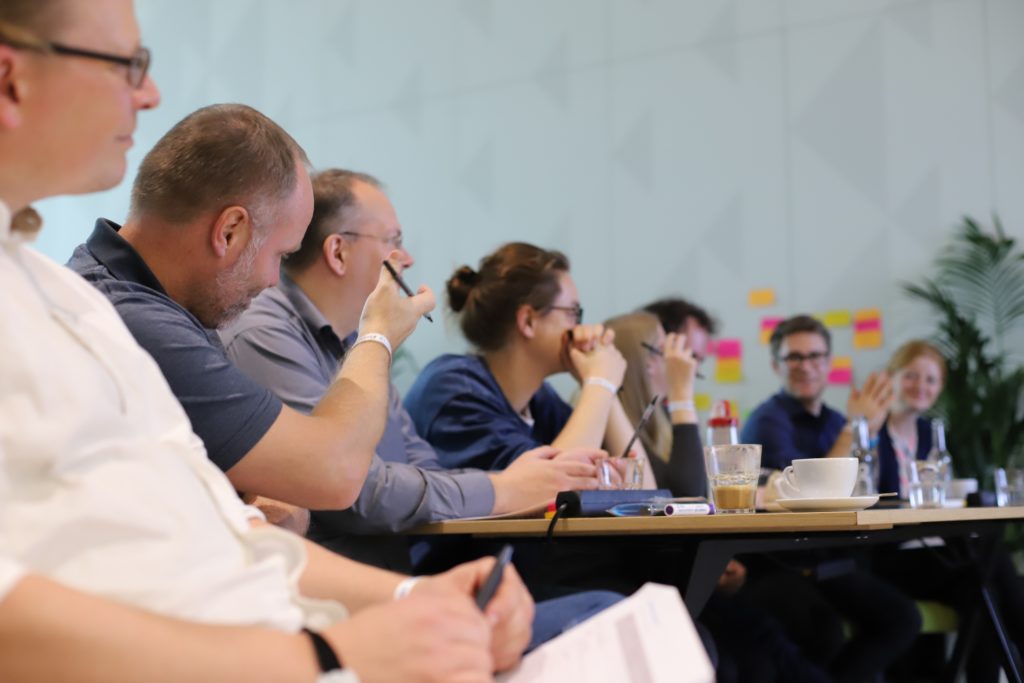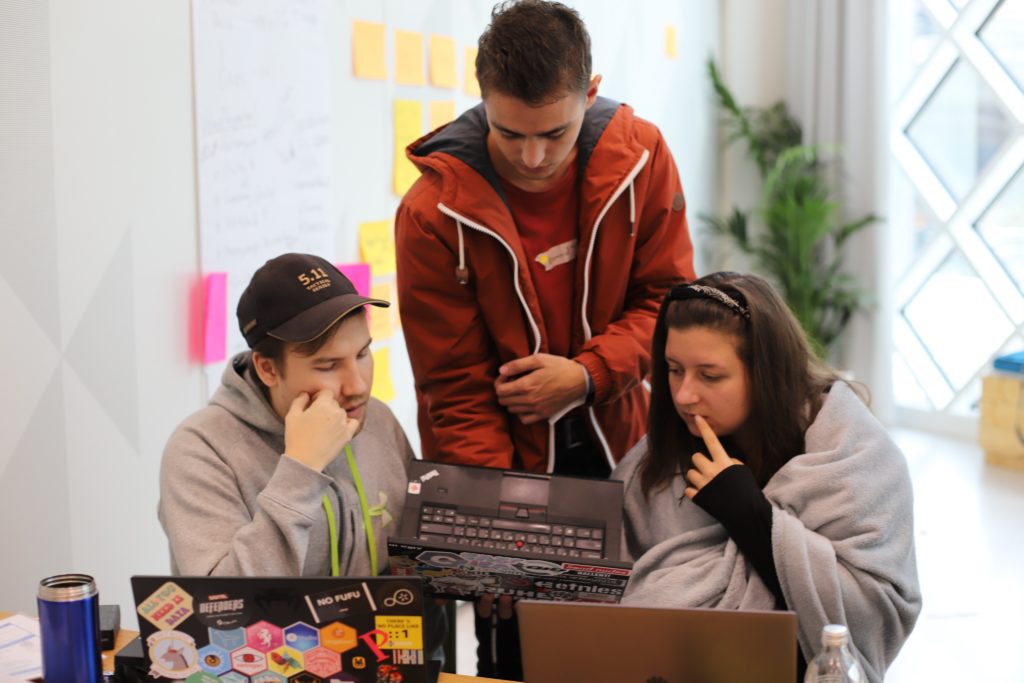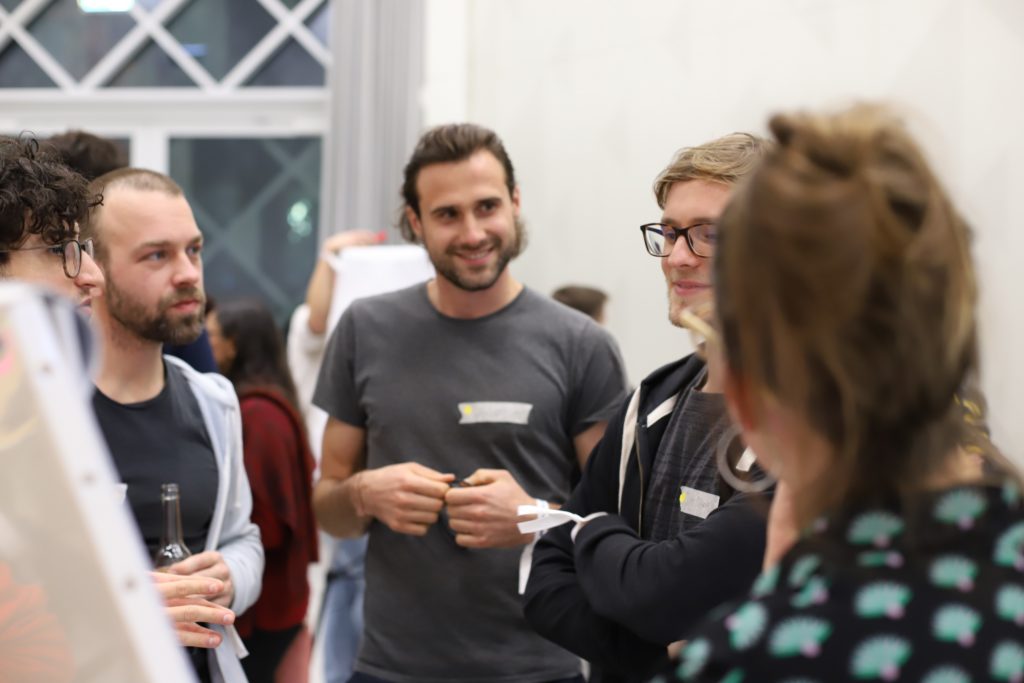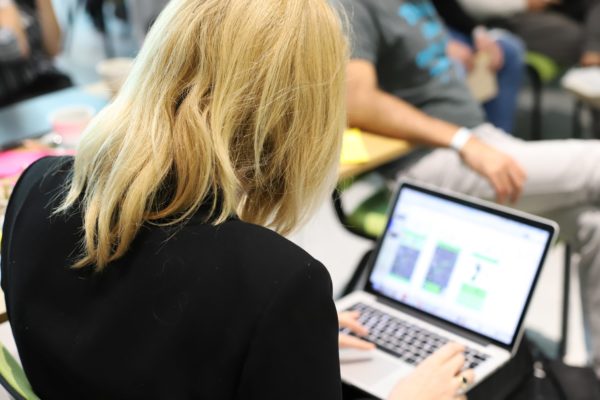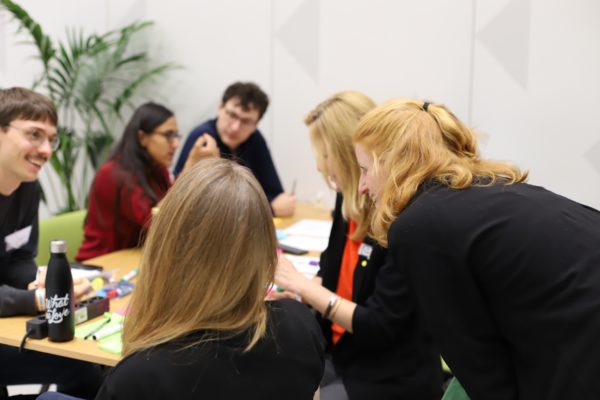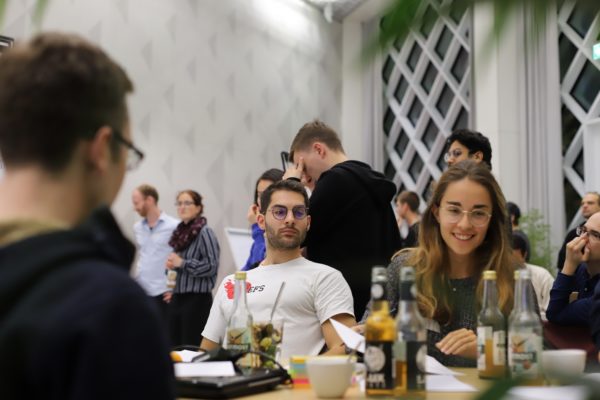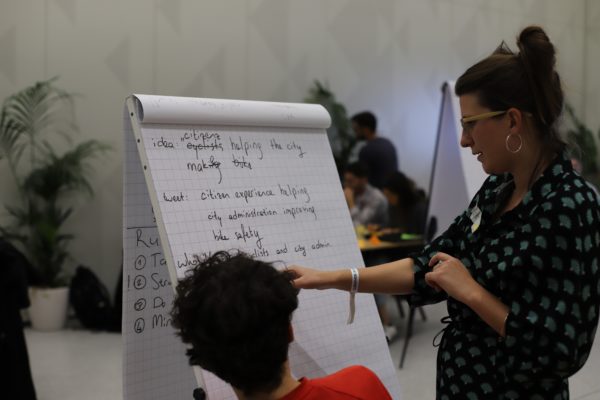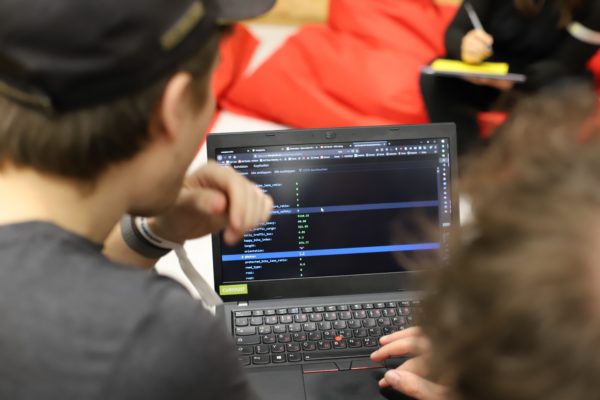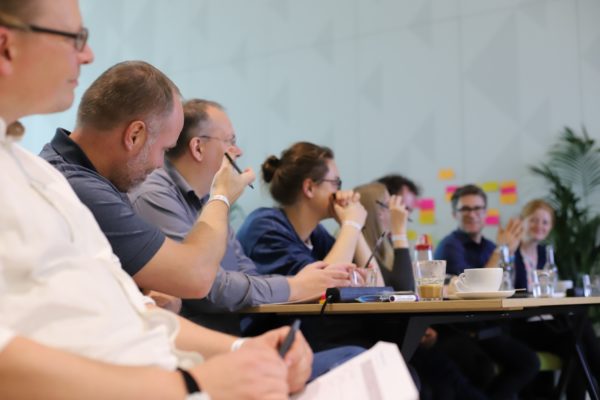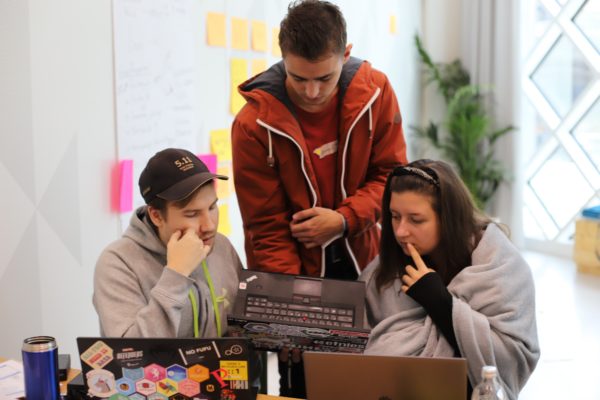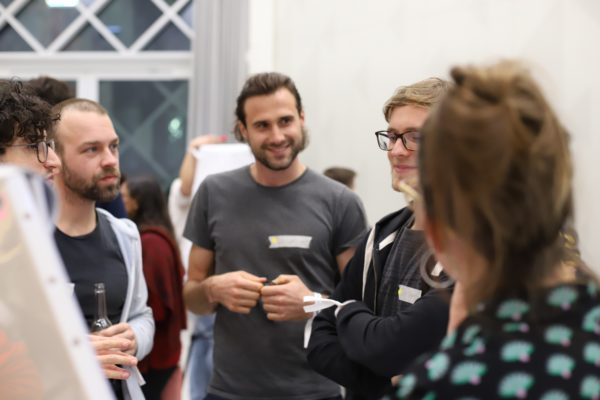The Climathon took place over 24hours starting on the 25th October 2019 at Futurium Berlin. Launching at 6pm on Friday evening, the event started with presentations by the four hosts Einstein Digital Future, Lichtblick, Edge Technology and the Open Source Lab. After the challenge hosts pitched their challenges, about 50 Climathonians decided to join the Open Source Lab challenge Berlin on the Move.
The Challenge
The Open Source Lab challenged participants to create open prototypes and ideas for a future sustainable mobility, facing the major challenges of the streets in Berlin. Solutions could address the following questions:
- How can mobility data contribute to urban CO2 reduction?
- How can tools support behavioural changes for a more environmentally conscious mobility behaviour?
- How could the environmental awareness of citizens, especially car drivers, be sharpened by tools?
- What are the weak spots of Berlin neighborhoods in terms of a lacking mobility infrastructure and how can these be solved?
- How can valuable data sources be used for mobility tools without undermining the digital self-determination of citizens?
- How can mobility data contribute to creating an open ecosystem for mobility solutions and which data is necessary?
The proposed solutions had to include the utilisation of open data, particularly datasets the Open Source Lab provided in partnership with the data partners. The partners and datasets were:
- FixMyBerlin: provided the Happy Bike Index, a rating of the Berlin cycling infrastructure
- Deutsche Bahn: Deutsche Bahn’s Open Data team provided a number of Berlin datasets, such as from DB Mindbox
- TIER Mobility: provided access to a dataset that includes anonymized geo-locations of all TIER rides in Berlin during September
- Tagesspiegel Innovation Lab: provided raw data from Radmesser
- VBB: provided open data, including S Bahn station and timetable data
- CityLab: provided an overview of Berlin’s open mobility data online as well as relevant open datasets, such as air pollution measurements
The teams began working after dinner and after some brainstorming for potential topics, five groups formed that each emphasized a different issue for their projects. Throughout the Climathon the atmosphere was filled with energy and enthusiasm. The teams were dedicated to utilising their skills to create a solution that could make real reductions in carbon emissions sources if realised and drive forward climate action.
The Results
Unlike usual hackathons, the Climathon teams were extremely multi-disciplinary, with developers and computer scientists working alongside social and environmental scientists as well as policy and design oriented individuals. The teams worked through the night developing their ideas into manageable prototype concepts that could be pitched to the jury the next day as viable solutions if they were to be developed into working prototypes post-Climathon. The solutions developed were New Track, Tonspur Berlin, Switchy, Eco2me, Report and Ride, CloseTheGap.
New Track
Data driven criteria based navigation system
The aim of New Track was to make walking in Berlin more attractive and safe by creating a user-centered app. With the help of data on air quality in Berlin as well as data on accidents, New Track can potentially reduce the numbers of car rides and make people opt for their own feet instead.
Tonspur Berlin
Activating Public Space
The team of Tonspur Berlin took an usual approach to stress the fun part of walking. The idea behind Tonspur Berlin is to develop an app that makes walking in Berlin more interactive by providing pedestrians with real-time background information on the route they are taking. “Did you know that this is the place where Kennedy said ‘Ich bin ein Berliner!’? Have a short listen to his speech!” or “The biggest Fridays for Future strike started right here. Listen to the chants of the protesters!” could be potential outcomes of the app. Walking could then ultimately appear more appealing to commuters of all kinds as they feel more connected to the city and their area.
Switchy
Help Cities to Reduce Congestions and Emissions via Park & Ride
Sustainable Mobility will only ever be a doable option for the majority of society if rural areas are connected to cities with bikelanes and public transport. Hence, Switchy came up with the idea to create an app that shows users the closest park-and-ride car parks to make commuting from the countryside into the city easier and more convenient. The app also shows the user’s CO2, time and money savings as a way to underline the value of public transport for individuals and the environment.
Eco2me
burn less, gain more
Treating users with small rewards for more sustainable mobility behavior is at the core of the app Eco2me.
The idea behind the project is simple yet smart: encourage users to switch to walking, cycling and using public transport instead of their car and give them small goodies in return. Eco2me allows users to collect e-coins which users can use for a discount on a coffee during their bike/walking/train commute to work.
Report & Ride
Obstacles such as e-scooters that are dumped on the pavement, bumps in the road, traffic jams during rush hours and roadworks can ruin the cycling experience around any city. In order to make cycling fun again, the Report & Ride team decided to create an app, which enables users to report any problems
CloseTheGap
Help decision makers make better decisions by providing urban intelligence.
The app combines different data sets in order to get a better understanding on the areas in Berlin that are difficult, and potentially dangerous, to cycle. The results could be useful for authorities, city planners as well as cyclist and tourists. We really like the inclusion of different stakeholders on top of the open data approach of the team, which aligns very well with our own policy.
The Winner
After only one night and day of working on their projects, on Saturday afternoon each team pitched their idea to the Berlin on the Move jury. Jury members were:
- Onno Szillis, DB Mindbox
- Alexander Pilz, VBB
- Vincent Ahrend, FixMyBerlin
- Michael Gegg, Tagesspiegel
- Stefan Schaffer, DFKI
- Julia Ebert, DFKI
- Phillip Lesch, VW
After a difficult round of consideration the jury chose CloseTheGap as the winning team. CloseTheGap’s data driven approach, with multiple currently disconnected data sources could create a new type of decision making tool to improve mobility policy making and governance. If developed further it could have an immediate and measured impact in Berlin for sustainable mobility. If you would like more information about the project, you can find their Github here.
Final thoughts
Finally, a big thank you to everyone at VBB, FixMyBerlin, Tier Mobility, DB Mindbox, City Lab Berlin and Radmesser for generously sharing your data, experience and knowledge with us. We believe that Climathon holds great potential in enabling more sustainable mobility in Berlin and strengthening the community for climate action and broader sustainable innovation.
